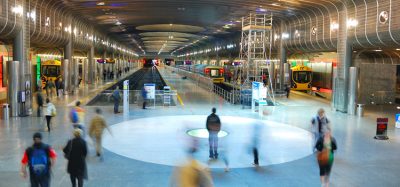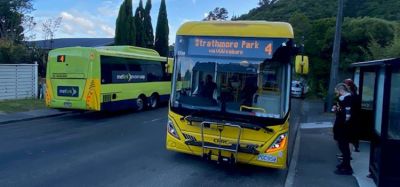Greater Wellington welcomes government contribution to improve working conditions for bus drivers
- Like
- Digg
- Del
- Tumblr
- VKontakte
- Buffer
- Love This
- Odnoklassniki
- Meneame
- Blogger
- Amazon
- Yahoo Mail
- Gmail
- AOL
- Newsvine
- HackerNews
- Evernote
- MySpace
- Mail.ru
- Viadeo
- Line
- Comments
- Yummly
- SMS
- Viber
- Telegram
- Subscribe
- Skype
- Facebook Messenger
- Kakao
- LiveJournal
- Yammer
- Edgar
- Fintel
- Mix
- Instapaper
- Copy Link
Posted: 31 October 2022 | Intelligent Transport | No comments yet
Combined with funding from mass transit operators and providers, the New Zealand government’s $61 million contribution will help make careers in public transport more attractive.


Greater Wellington Regional Council has announced that the New Zealand government will be providing $61 million as part of its 2022 Budget, in order to help lift bus driver wages and working conditions across the country.
In addition to the government’s budget, the funding announcement also requires operators and public transport providers like Greater Wellington’s transport arm, Metlink, to make further contributions to driver wages.
Chair of Greater Wellington, Daran Ponter, said: “Greater Wellington is supportive of Minister Wood’s funding announcement. It is much needed support for a sector that is struggling to deliver at the moment. I look forward to discussing the funding further with my fellow councillors when it goes to Council. At Greater Wellington, we have made it clear that addressing the national driver shortage is our number one priority to help improve reliability on the Metlink network.”
Greater Wellington has worked closely with unions, operators and the government on a range of initiatives to improve driver wages and conditions over the last few years in order to make public transport careers attractive and services reliable.
Wellington’s air quality improves as Metlink’s electric bus numbers increase
The New Zealand government’s $61 million announcement follows the passing of the Fair Pay Agreements Bill’s third reading. Fair Pay Agreements will make it easier for workers across industries like public transport to negotiate wages and working conditions.
Wages are just the starting point with Fair Pay Agreements. Bus drivers will also be able to work with their employers to set standards on a range of working conditions from training, Health & Safety, shifts and culture.
One of the remaining challenges for operators and public transport providers will be attracting enough new drivers in a very tight labour market. Wellington City, in particular, has been impacted by the national driver shortage, needing more than 120 drivers.
“This funding and Fair Pay Agreements provide a sensible framework for New Zealand which the government can build on by lifting border controls and empowering operators to bring in experienced overseas drivers,” said Daran Ponter.
If you liked this, you may also be interested in:
▶ Go-Ahead launches pioneering toolkit to support Dyslexic bus drivers
▶ Gender bias in transport needs to be addressed to meet climate targets, says new ITF report
Related topics
Public Transport, Transport Governance & Policy, Workplace
Related modes
Bus & Coach
Related cities
Wellington
Related countries
New Zealand
Related organisations
Greater Wellington Regional Council, New Zealand Government
Related people
Daran Ponter, Michael Wood








